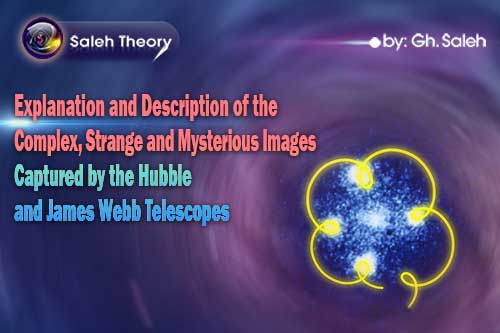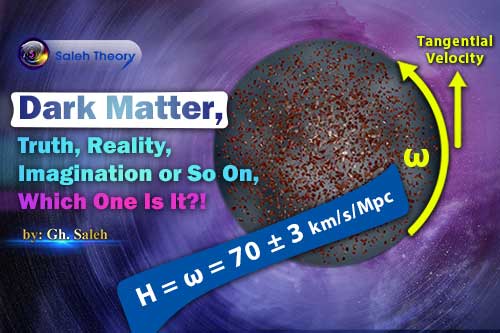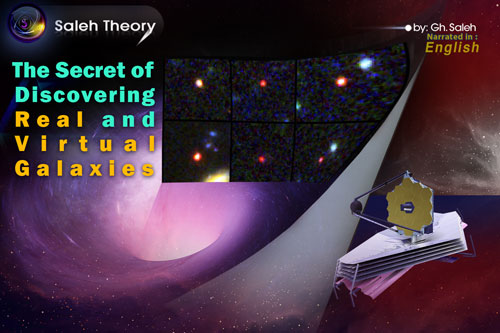
The James Webb Space Telescope discovers enormous distant galaxies that should not exist
This paper has been published in February 22, 2023 by Tereza Pultarova. It states that "Giant, mature galaxies seem to have filled the universe shortly after the Big Bang, and astronomers are puzzled. Nobody expected them. They were not supposed to be there. And now, nobody can explain how they had formed."
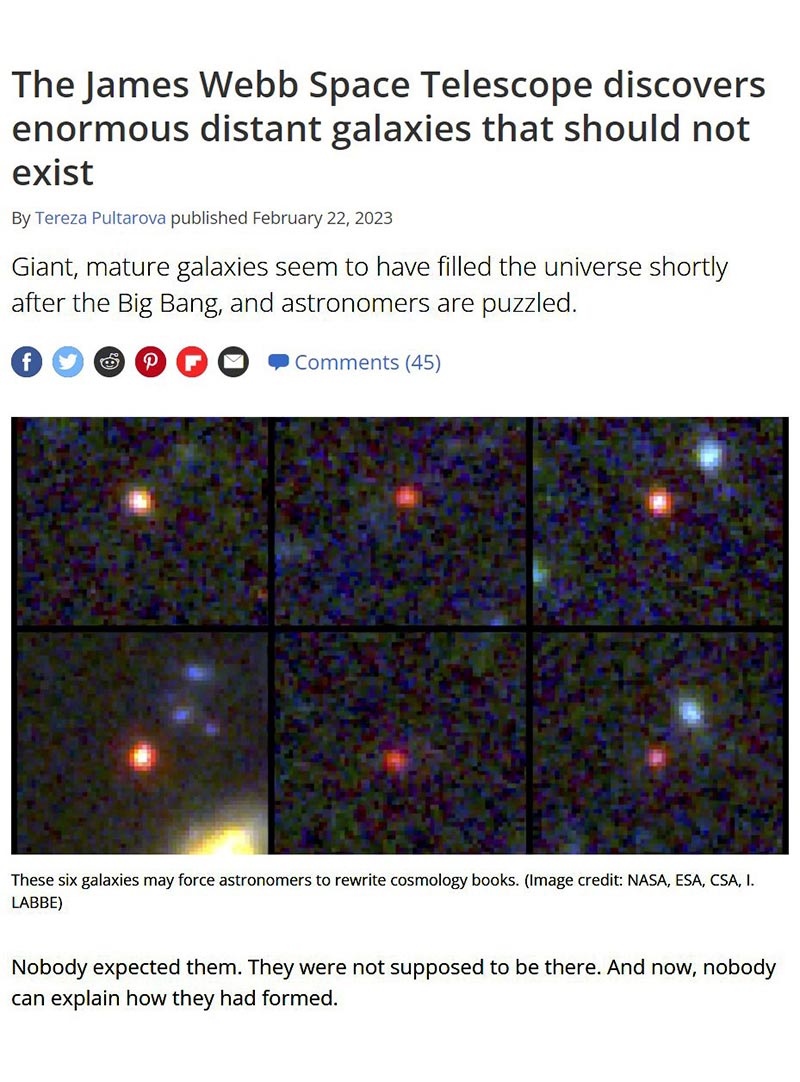
The secret of discovering real and virtual galaxies
This phenomenon may have happened in two ways:
A. The discovered galaxies could be real
B. The discovered galaxies could be virtual
A. The discovered galaxies could be real:
The first stage of forming a galaxy is the formation of a black hole and the next one is revolving other celestial objects around the black hole. Discovery of a large galaxy indicates the existence of a massive black hole at its center. As we know, a large enough star after death can turn into a high-density black hole. The reason is that there are enough pressure and energy within the star to create a black hole.
On the other hand, the initial sphere of the universe at the Big Bang was extremely dense, with about 1042(Kg/m3)
density, and an extremely high energy. When a massive star dies, it can cteate a black hole, and the initial sphere of the universe at the Big Bang have had a much higher pressure and energy level, which undoubtedly could cteate a larger black hole than the ones that a star creates after its death. So, the central black hole of this galaxy could be formed at the moment of the Big Bang. Moreover, since this black hole is an initial black hole, it have had enough time for the growth and formation of a large galaxy.
B. The discovered galaxies could be virtual:
As we know, the existence of velocity causes a shift in frequency or the same redshift and blueshift. Therefore the amount of shift in frequency is dependent on velocity. On the other hand, according to Hubble's law, a greater distance means a higher velocity. Considering the distance of this galaxy, its velocity will be so high. Therefore, the frequency shift of this galaxy is so high and causes a shift from range of visible light frequencies to radio waves, X-rays, or vice versa (which we call highshift and lowshift). This galaxy could be virtual, it means that the phenomenon of highshift or lowshift may have had an effect on it and caused the creation of a celestial mirage.[1,2,3]
The details of the both A and B have been published.
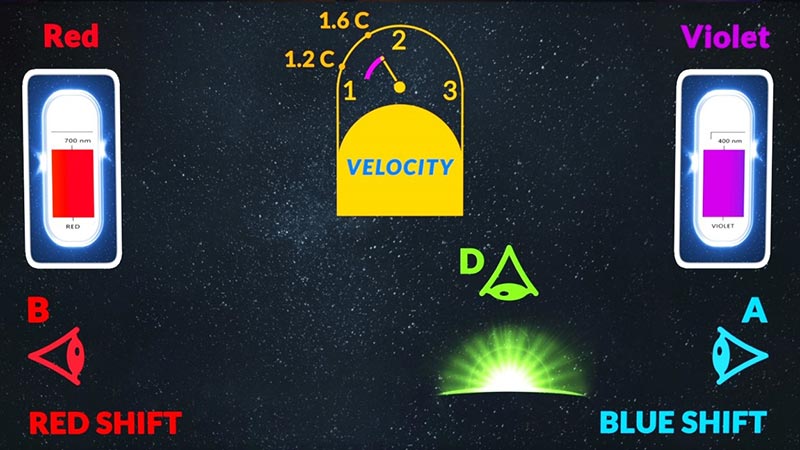
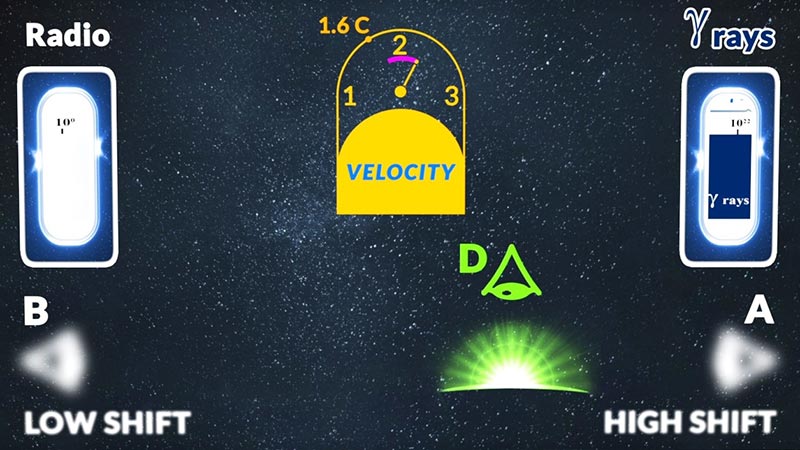
C. The final and complete answer:
Based on the properties of this galaxy, it could be a real galaxy, but the effect of blueshift and highshift or the effect of redshift and lowshift can be imagined on it. In fact it can be said that the captured image is a combination of real and virtual.
An example for explaining mode C:
Considering that the galaxy is real, due to the phenomenon of celestial mirages (which occur due to the high speed of the galaxy relative to us and causes a change in the received frequency from the galaxy, resulting from the phenomenon of highshift/blueshift or lowshift/redshift), we observe it in a different location. For example, we should observe Mars in its actual location, but due to celestial mirages, we observe it in the location of Venus. Or by thinking that we observe Mars, but due to the errors of the above phenomena, we actually observe Saturn.
In general, it can be said that the actual position of the galaxy according to logical and scientific calculations is correct, but due to celestial mirages, changes in location and color occur when observing it. The galaxy may be farther away, and we see it closer or farther and may be on the right side, but it appears on the left side.In fact, it can be said that just as we have light refraction on the surface of the water, celestial mirages also can shift the image.
Hint:
What is the solution?
Using telescopes that work based on the wavelength of waves.We must say that the best way to prevent such ambiguities is to build telescopes those sensors operate based on wavelength rather than frequency, since the wavelength always has a constant value.

References:
[2] Saleh, Gh., et al. "A new explanation for Redshift/Blueshift", 2021.



